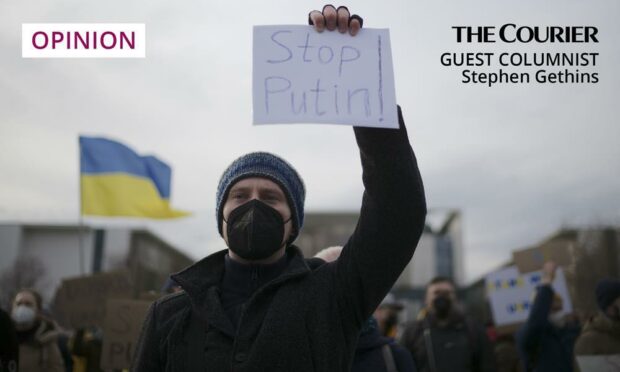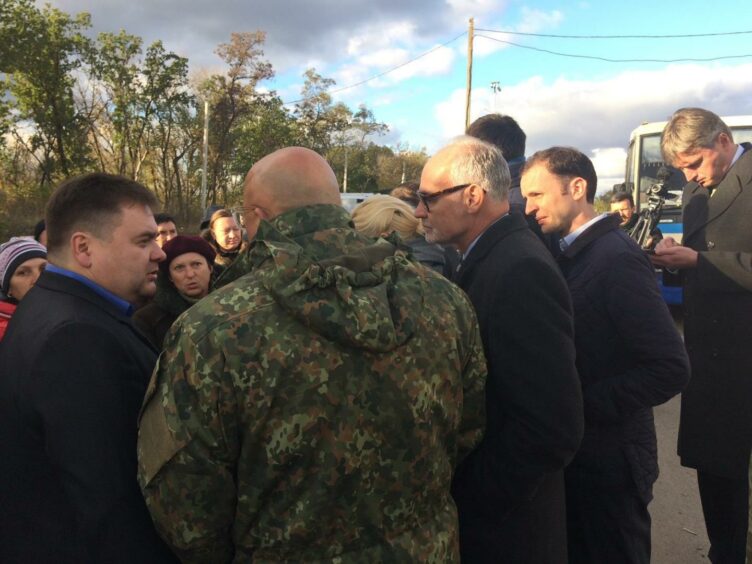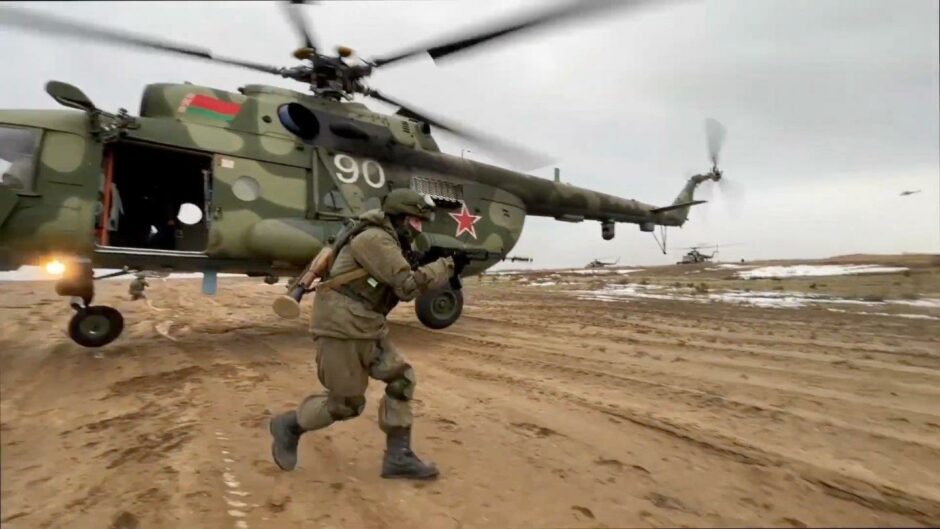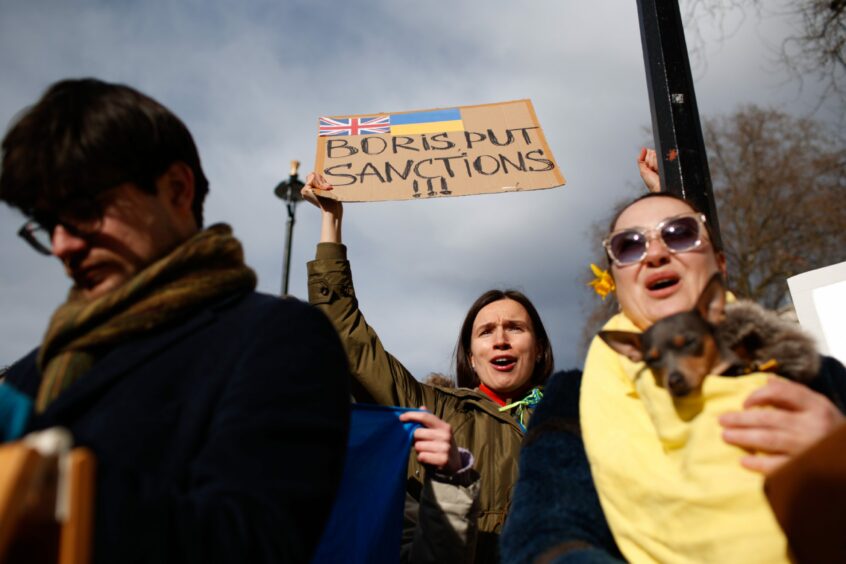Once again Europe has been plunged into conflict and its shadow will be unsettling for us all.
It will be even worse for those with friends and relatives in Ukraine, living in communities not so different from our own, worried for their safety and the future of their families and country.
Ukraine is not perfect, no country is. But over years of working there alongside its politicians, civil society, and citizens, I have been struck by the desire of its people to build a democratic society and a better future.
During the past few weeks, we heard stark warnings of an impending Russian invasion as Vladimir Putin massed troops on Ukraine’s borders.
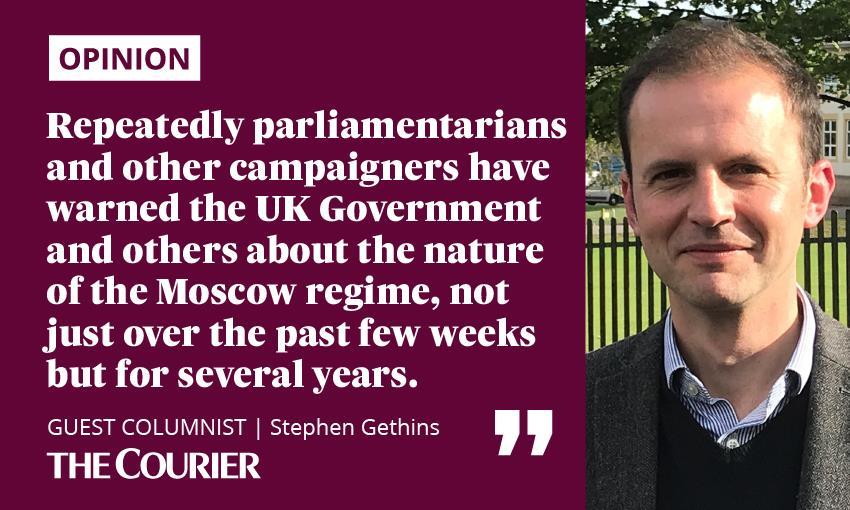
That was unsettling. But it left us in no doubt that this war is a well-planned act of aggression by Russia on an independent and sovereign neighbour.
None of this should come as any surprise to anyone.
Vladimir Putin has long been feared by his neighbours, especially those who gained independence when the Soviet Union collapsed.
Russia’s neighbours are living in fear
Over two decades ago my first job in the NGO sector involved working on peacebuilding in the South Caucasus and elsewhere in the former USSR, including Ukraine.
I was based in Tbilisi, the capital of Georgia, whose territory had partly been occupied by Russian forces in South Ossetia and Abkhazia.
Refugees from those conflicts were living in the most dreadful conditions.
Nearby across the border with Georgia, a devastating war in Chechnya had been fought as the Republic sought to secede from Russia in the 1990s.
That war cost the lives of thousands of combatants and tens of thousands of innocent civilians.
A UN Report published in 2003 described the Chechen capital Grozny as the “most destroyed city on earth”.
Since then, we have witnessed the brutal crackdown of democracy protestors in Belarus by Kremlin backed authorities.
We have seen a devastating conflict in Syria where Russian bombing has been responsible for the deaths of innocent civilians supporting Assad’s murderous regime.
And of course, we have seen the annexation of parts of Ukraine, including Crimea, in 2014.
It is little wonder that Russia is feared rather than respected by its neighbours.
Ukraine invasion is the latest atrocity
Many of the victims of Putin’s regime are Russian citizens.
Human rights campaigners face regular harassment and beatings. Opposition politicians are jailed and murdered. And it is one of the most dangerous countries in the world to be a journalist.
It is also a country where corruption is rife and a small minority around Putin hold much of the wealth whilst millions live in dire poverty.
We know the violent nature of the regime in Russia. Respect to these anti-war protestors, incredibly brave. https://t.co/9mzKjeJ80I
— Stephen Gethins (@StephenGethins) February 24, 2022
This is no secret. For more then 20 years we have been well aware of the murderous and corrupt nature of the Kremlin regime.
The invasion of Ukraine is upsetting and devastating but it was utterly predictable.
Despite that there have been no serious efforts to stop the flow of “dirty money” into London, or stop the steady stream of Russian disinformation that has poisoned our political discourse.
Repeatedly parliamentarians and other campaigners have warned the UK Government and others about the nature of the Moscow regime, not just over the past few weeks but for several years.
The actions of Putin’s apologists, who have been complicit in profiteering from
Russian corruption, or the spread of misinformation, is blatant, and it is what makes
their actions so unconscionable.
They knew the nature of this appalling administration.
The people of Ukraine are the latest to suffer from this violent and autocratic regime.
They deserve better, much better than half-hearted efforts and complicity by those who should have known better.
Stephen Gethins is a Professor of International Relations at the University of St Andrews and a former SNP MP and Member of the House of Commons Foreign Affairs Committee.
